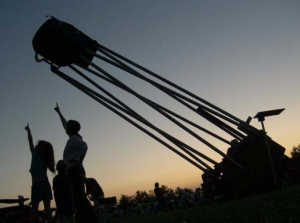Great Meadow Public Night is cancelled this evening because of predicted overcast conditions.
RSVP here.
Members of the public are invited to view the wonders of the universe through the telescopes of NOVAC volunteers. You do not need to be a member of the club or own any astronomical equipment to attend.
From 7:30pm until sunset (8:06pm) you can inspect different telescopes and other visual equipment on the field. Have a cosmic question? One of our astronomers will be happy to help you. After sunset be prepared to enjoy the wonders of the night sky!
For lighting, cover a flashlight in red cellophane (the darker the better). Bring along water to keep hydrated and plan on staying the entire evening or as long as the weather allows. Feel free to walk around and the different telescopes on display but please ask the owner before using. Please monitor your children around expensive astronomical equipment. Remember, telescope mirrors are sensitive to cigarette smoke and bug spray. Finally, pets should not be brought onto the observing field unless they are service animals.
Note: This event is weather-dependent and may be cancelled because of significant cloud cover or precipitation.
See front page of NOVAC Site for changes to event. More information about Great Meadow including directions and parking visit the Great Meadow Site page.
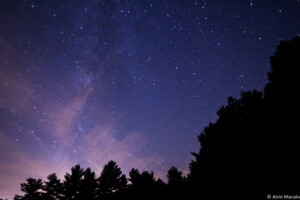
RSVP here.
Members of the public are invited to view the wonders of the universe through the telescopes of NOVAC volunteers. You do not need to be a member of the club or own any astronomical equipment to attend.
Featured objects will include Jupiter, Saturn, Neptune, and deep sky objects like star clusters, nebulae, and galaxies.
Arrive before sunset (7:30pm) if you want to inspect different telescopes and other visual equipment on the field. Have a cosmic question? One of our astronomers will be happy to help you. After sunset be prepared to enjoy the wonders of the night sky!
Feel free to walk around and enjoy the different telescopes on display but please ask the owner before using. Please monitor your children if they’re around expensive astronomical equipment. Remember, telescope mirrors are sensitive to cigarette smoke and bug spray. Pets should not be brought onto the observing field as well (unless they are service animals).
Don’t forget to dress warmly! Please check the weather forecast. For lighting, cover a flashlight in red cellophane (the darker the better). Bring along water to keep hydrated and plan on staying the entire evening or as long as the weather allows. If you’re arriving after dark, please dim your vehicle’s headlights as you approach the gravel parking lot.
Note: This outdoor event is weather-dependent and may be cancelled because of significant cloud cover or precipitation.
Please read the C.M. Crockett Page for park details.
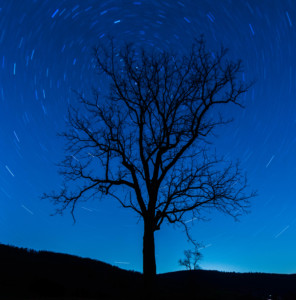
RSVP here.
NOVAC supports this event by providing telescope views to visitors.
- Sky Meadows State Park (11012 Edmonds Ln.), behind the Mount Bleak House within the white fence.
- For individuals who are fully vaccinated face coverings and social distancing are no longer required but recommended. Individuals who are not yet fully vaccinated will be asked to continue face covering and social distancing procedures.
Please visit the official website for more details.
RSVP here.
Members of the public are invited to view the wonders of the universe through the telescopes of NOVAC volunteers. You do not need to be a member of the club or own any astronomical equipment to attend.
Arrive before sunset (7:22pm) to inspect different telescopes and other visual equipment on the field. Have a cosmic question? One of our astronomers will be happy to help you. After sunset be prepared to enjoy the wonders of the night sky!
For lighting, cover a flashlight in red cellophane (the darker the better). Bring along water to keep hydrated and plan on staying the entire evening or as long as the weather allows. Feel free to walk around and the different telescopes on display but please ask the owner before using. Please monitor your children around expensive astronomical equipment. Remember, telescope mirrors are sensitive to cigarette smoke and bug spray. Finally, pets should not be brought onto the observing field unless they are service animals.
Note: This event is weather-dependent and may be cancelled because of significant cloud cover or precipitation.
See front page of NOVAC Site for changes to event. More information about Great Meadow including directions and parking visit the Great Meadow Site page.
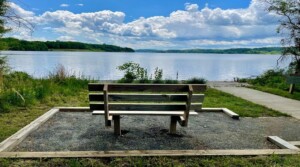
RSVP Here.
Widewater State Park and NOVAC will be co-hosting a stargazing event that’s open to the public. NOVAC members will provide telescopes to view objects in the night sky. You do not need to be a member of the club or own any astronomical equipment to attend.
Featured objects will include the Moon, Jupiter, Saturn, star clusters, and nebulae.
For individuals who are fully vaccinated, face coverings and social distancing are not required. Individuals who are not yet fully vaccinated should continue face covering and social distancing procedures.
This outdoor event is weather-dependent. In the event of significant cloud cover or inclement weather, a presentation in the Visitor Center will replace the stargazing event (topic TBD).
For more information, please visit Widewater State Park’s website.

Astronomy with X-rays: How, Where, and Most Importantly Why?
Dr. Randall Smith
Sunday, September 12, 2021
7:30 PM to 9:00 PM EST
Online event
meet.google.com/osh-bcyd-gti
Monthly Meeting – Public Invited
Abstract:
X-ray astronomy began in 1962 when Riccardo Giacconi and his team launched a sounding rocket with an X-ray detector designed to look at the Moon – and unexpectedly found a far brighter source in Scorpius they called Sco X-1. Generating X-rays requires energetic processes – big explosions, strong gravitational fields, and collisions of fast or even relativistic particles. Observing them thus reveals just what’s going on in these exciting regions of space. We can also take advantage of the penetrative properties of X-rays – just as we do to look at a broken bone here on Earth – to study material between the source and us as the X-rays are absorbed and scattered by gas and dust. Since 1962 the field has exploded, with a range of new detectors as well as techniques to make high-quality X-ray “mirrors.” This talk will be a survey of the field, highlighting important discoveries as well as the instrumentation required, as well as discussing where we’re going next.
Bio:
An astrophysicist at the Harvard-Smithsonian Center for Astrophysics, Randall Smith primarily works in high-energy astrophysics. He is involved with multiple X-ray observatories, both current and planned; his personal research focuses on the interstellar medium and on maintaining an atomic database that is used throughout the field to model the spectra of hot collisional plasmas. He earned his PhD in 1997 at the University of Wisconsin-Madison, working with the Space Physics group and advisor, Dr. Don Cox.
RSVP here.
Members of the public are invited to view the wonders of the universe through the telescopes of NOVAC volunteers. You do not need to be a member of the club or own any astronomical equipment to attend.
Arrive before sunset (6:47pm) to inspect different telescopes and other visual equipment on the field. Have a cosmic question? One of our astronomers will be happy to help you. After sunset be prepared to enjoy the wonders of the night sky!
For lighting, cover a flashlight in red cellophane (the darker the better). Bring along water to keep hydrated and plan on staying the entire evening or as long as the weather allows. Feel free to walk around and the different telescopes on display but please ask the owner before using. Please monitor your children around expensive astronomical equipment. Remember, telescope mirrors are sensitive to cigarette smoke and bug spray. Finally, pets should not be brought onto the observing field unless they are service animals.
Note: This event is weather-dependent and may be cancelled because of significant cloud cover or precipitation.
See front page of NOVAC Site for changes to event. More information about Great Meadow including directions and parking visit the Great Meadow Site page.

RSVP here.
NOVAC supports this event by providing telescope views to visitors.
- Sky Meadows State Park (11012 Edmonds Ln.), behind the Mount Bleak House within the white fence.
- For individuals who are fully vaccinated face coverings and social distancing are no longer required but recommended. Individuals who are not yet fully vaccinated will be asked to continue face covering and social distancing procedures.
Please visit the official website for more details.
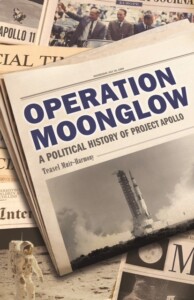
Operation Moonglow: A Political History of Project Apollo
Dr. Teasel Muir-Harmony, PhD
Sunday, October 10, 2021
7:30 PM to 9:00 PM EST
Online event
Monthly Meeting – Public Invited
Abstract:
On July 20th, 1969, over half the world’s population witnessed Neil Armstrong’s first step on the Moon. While often remembered as a scientific and technological feat, the ambitions of the Apollo program aimed far beyond the Moon. Through spaceflight, America sought to win hearts and minds, foster alliances, and shape the political trajectories of newly independent nations. Drawing on a rich array of untapped archives and firsthand interviews, Operation Moonglow knits together a story of politics and propaganda; diplomacy and spaceflight; decolonization and globalization to reveal the political forces that not only sent humans to the Moon but also attracted the largest audience in history.
Bio:
Dr. Teasel Muir-Harmony is the curator of the Apollo Collection at the Smithsonian National Air and Space Museum in Washington, DC. She earned a PhD from MIT and has held positions at the American Institute of Physics and the Adler Planetarium and Science Museum. She is the author of Operation Moonglow: A Political History of Project Apollo (2020) and Apollo to the Moon: A History in 50 Objects (2018), and a contributor to the television series Apollo’s Moon Shot. In addition, Muir-Harmony co-organizes the Space Policy & History Forum and teaches at Georgetown University.


